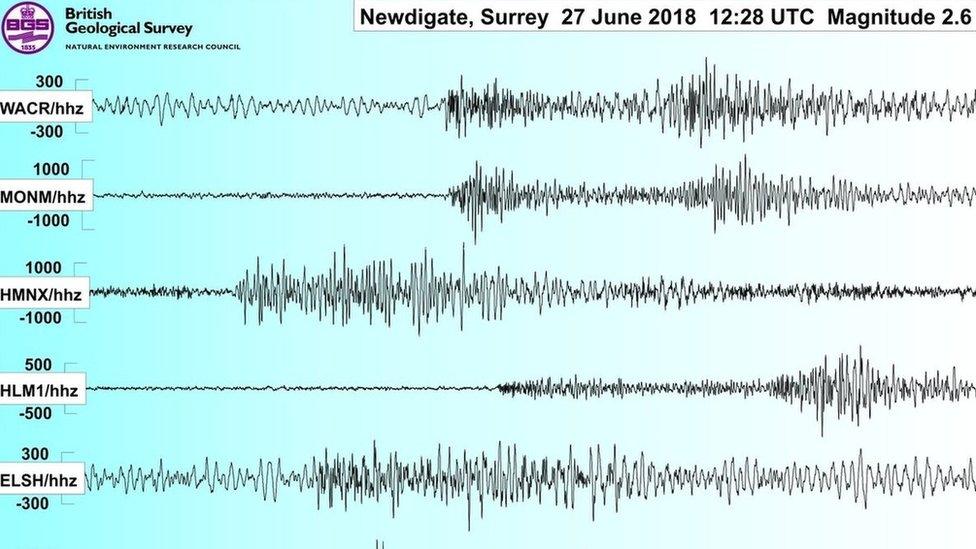'Surrey swarm' quakes 'not caused by oil extraction'
- Published
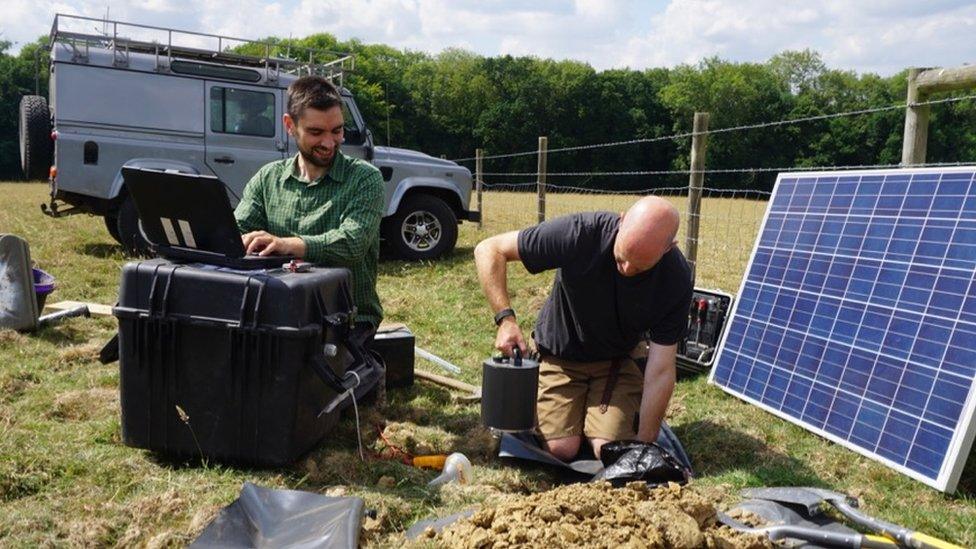
Dr Stephen Hicks, left, installed monitoring equipment near Newdigate in July 2018
Scientists have found no evidence that oil extraction caused a series of 34 earthquakes known as the "Surrey swarm".
The tremors began in April 2018, and neighbours blamed oil wells a few miles away in Horse Hill and Brockham.
Scientific opinion on the cause of the quakes has been divided.
A study by Imperial College London, the University of Bristol and the British Geological Survey (BGS) concluded the earthquakes were natural.
Lead author Dr Stephen Hicks said: "The quakes seem to have occurred naturally, and our findings suggest their closeness to oil extraction sites is probably a coincidence."
The quakes occurred between April 2018 and May 2019, within 10km (6.2 miles) of two active oil extraction sites where test drilling had been carried out.
The largest reached a magnitude of 3.2 and was felt by people in Newdigate, Dorking, Horley and Charlwood in Surrey, as well as Crawley and Horsham in West Sussex.
One person told the BGS it felt "as if a large lorry had crashed into the side of the house", while another described the sound as "like an explosion".

What did researchers consider?
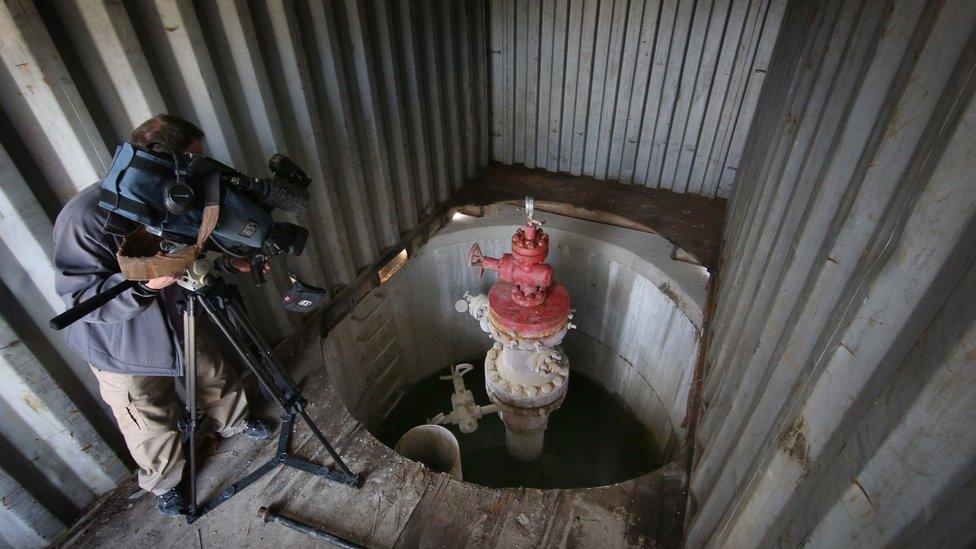
The Horse Hill well - known as the Gatwick Gusher - was blamed for the quakes by some residents
Researchers focused on four areas to decide if the quakes were natural, or as a result of the drilling.
These were: the direction rocks moved during the quakes, the depth of the quakes, the timing, and their location.
They installed seismometers - instruments that measure ground vibrations - around the area and compared data with data from existing sensors which had been monitoring seismic activity in the area since 2017.
The direction
According to the report, most natural earthquakes in the UK cause rocks on either side of weaknesses in the ground, known as faults, to move horizontally.
Earthquakes caused by oil extraction cause rocks either side of faults to move vertically, the seismologists said.
The researchers found the "Surrey Swarm" quakes moved ancient faults horizontally.
The depth
The team found the Surrey earthquakes were about 2.5km (1.5 miles) deep, whereas rock formations from which oil is extracted, are less than 1km (0.6 miles) down.
The timing
The seismometers detected 168 small magnitude earthquakes between 2018 and 2019.
The first cluster happened in April 2018, two years after oil extraction tests in 2016, but before further tests started in July 2018.
The location
Rather than clustered around the extraction sites, the tremors were in a tight area more than 3km (1.9 miles) away.
Dr Hicks said: "It would be unprecedented for this type and scale of oil extraction to affect sites more than a kilometre away."

Prof Stuart Haszeldine, from the University of Edinburgh, previously told the BBC he believed the Horse Hill well - nicknamed the "Gatwick gusher" due to its proximity to the airport - was responsible for the "unprecedented" series of quakes.
"Whenever the oil and gas operators start preparing for some intervention, then there is a set of earthquakes," he said. "It's pretty straightforward."
But Dr Hicks responded by saying there was "no obvious link to the nearby oil drilling activities".
Emergency call made after Surrey earthquake
The study said the swarm could have been caused by the ongoing collision of African and Eurasian tectonic plates in the Mediterranean Sea.
Dr Hicks author said it was "not the first time earthquakes have come seemingly from nowhere", and similar swarms had happened in the UK before.
He added: "If oil extraction caused the earthquakes, then it did so by a mechanism that hasn't yet been reported anywhere else in the world."
The researchers plan to continue monitoring quakes in the area for the foreseeable future.

Follow BBC South East on Facebook, external, on Twitter, external, and on Instagram, external. Send your story ideas to southeasttoday@bbc.co.uk.
- Published15 April 2019
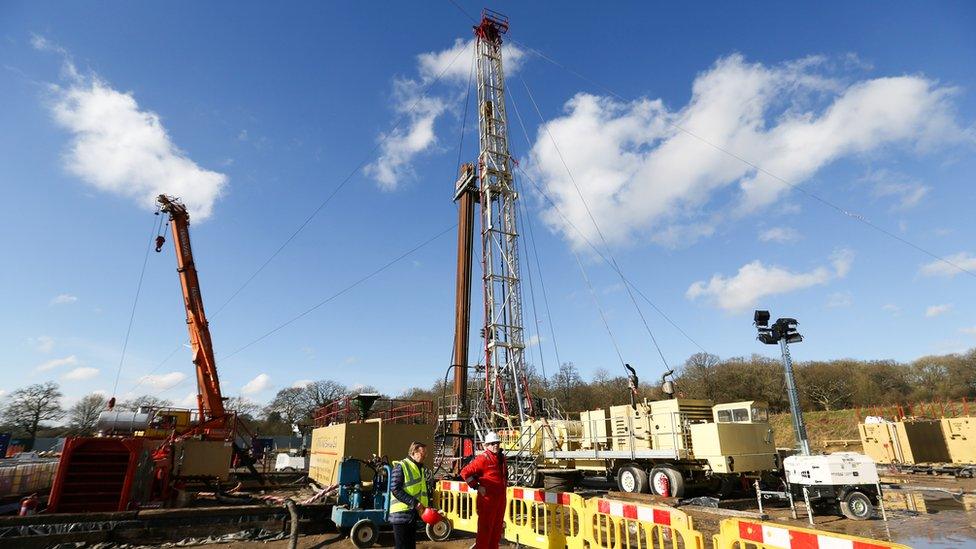
- Published27 February 2019
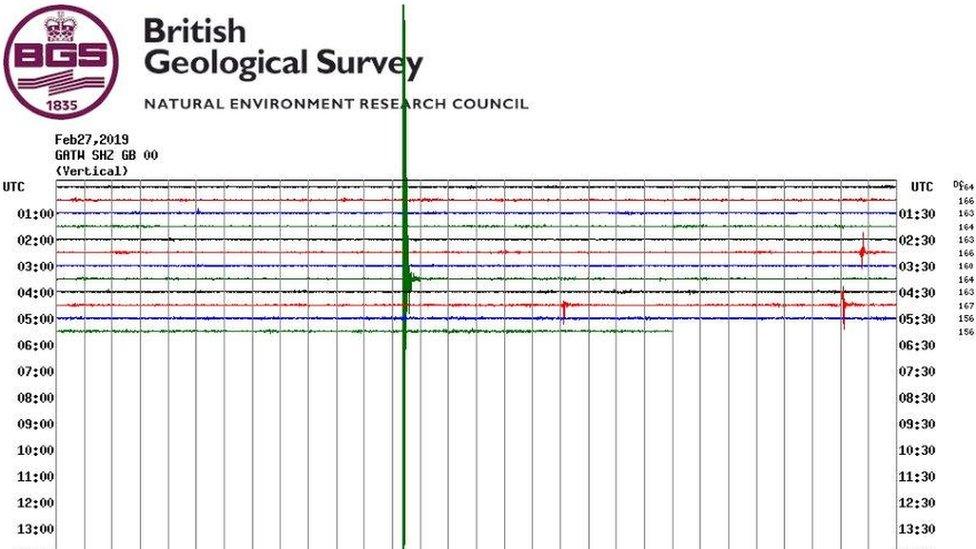
- Published14 February 2019
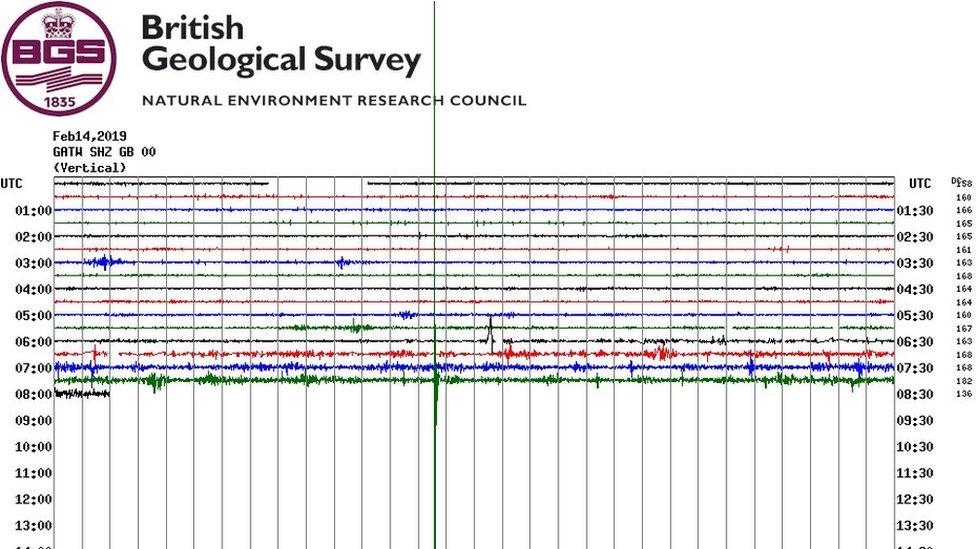
- Published20 July 2018
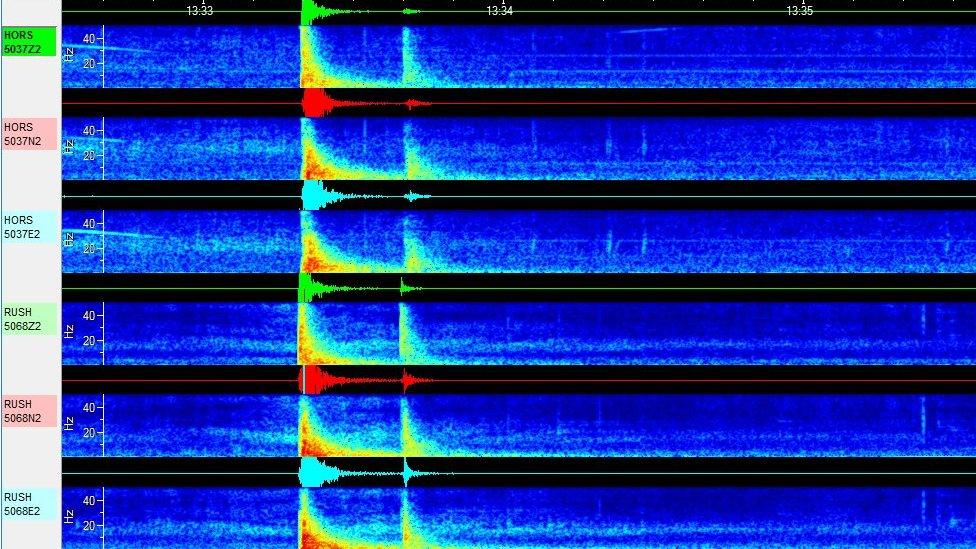
- Published18 July 2018
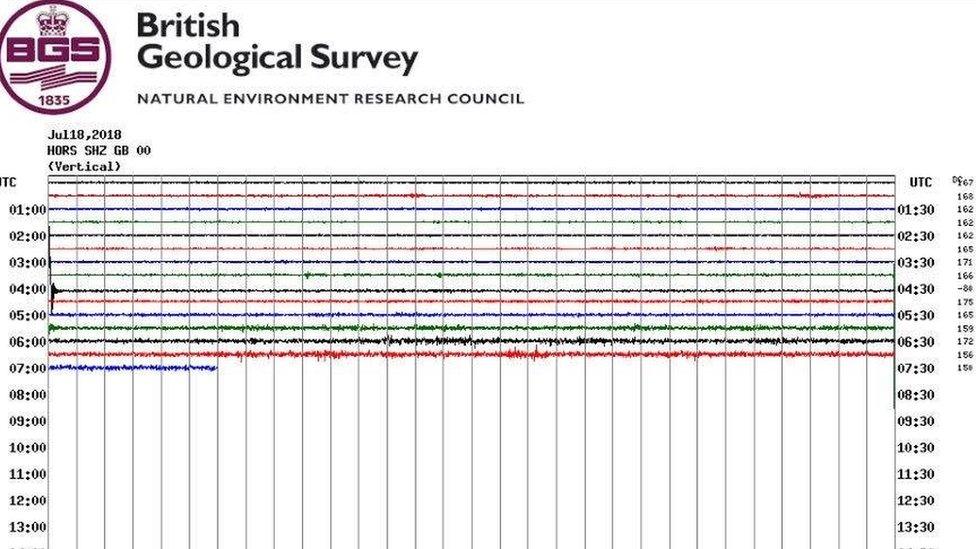
- Published11 July 2018
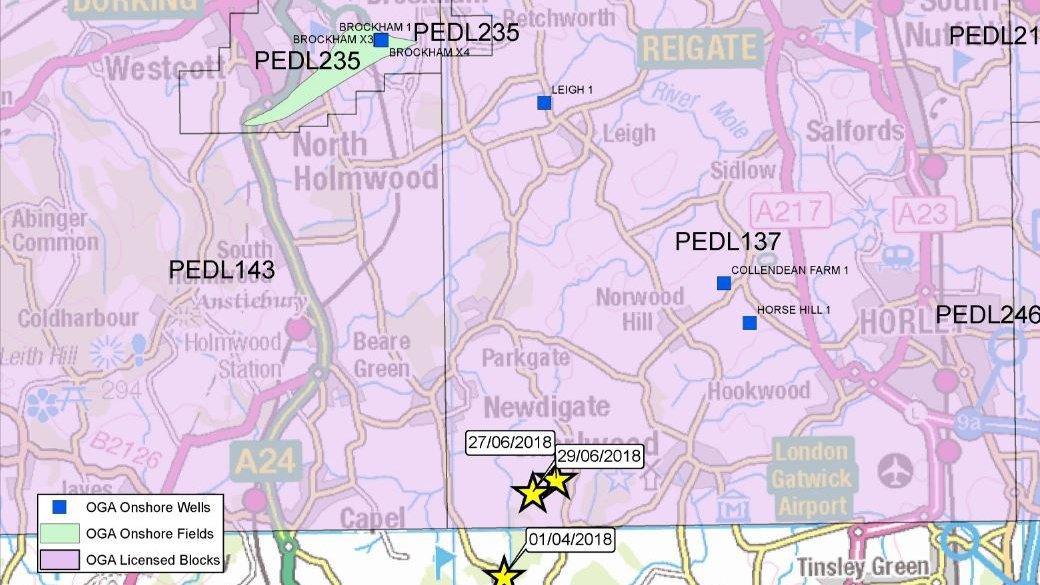
- Published29 June 2018
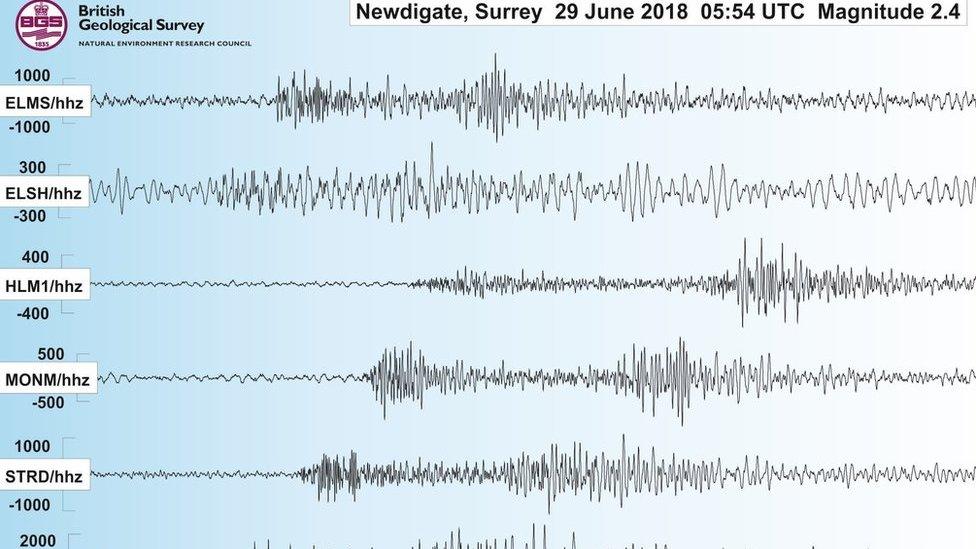
- Published27 June 2018
